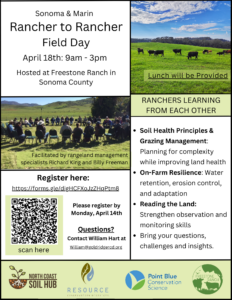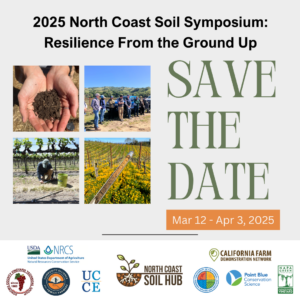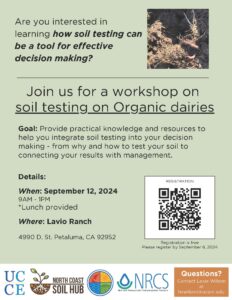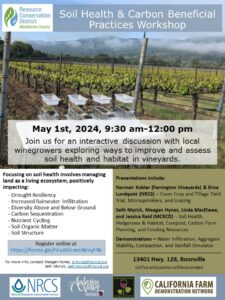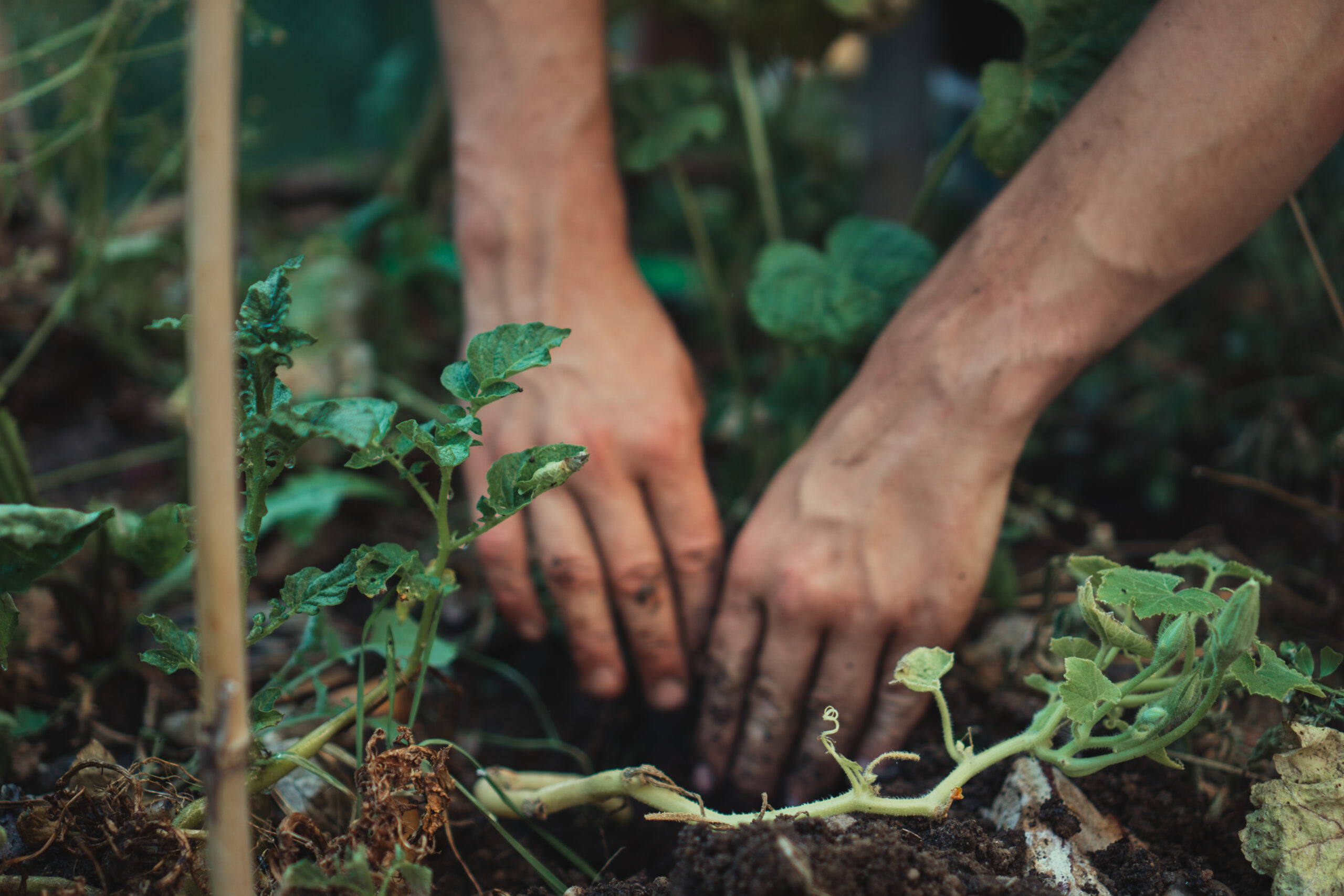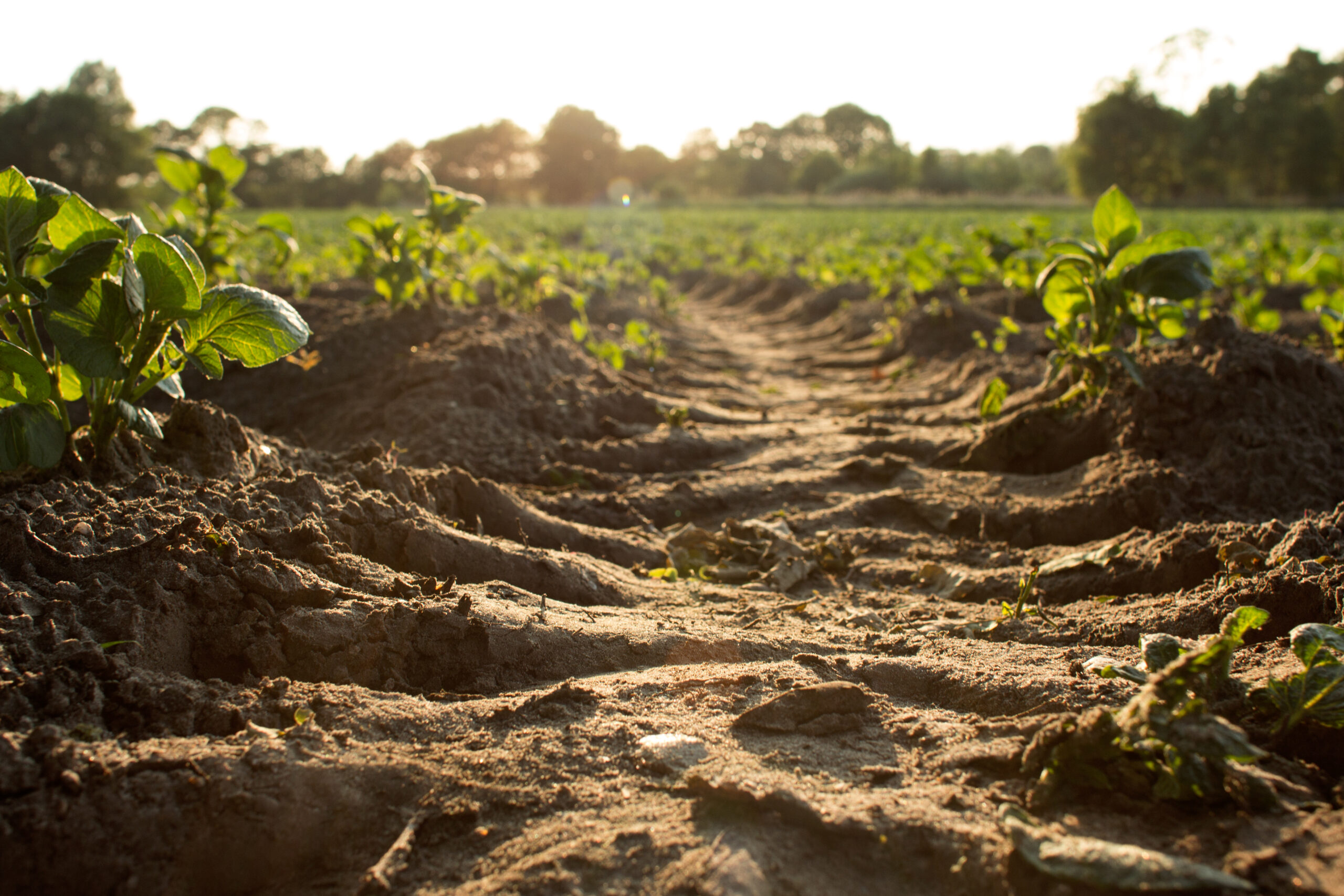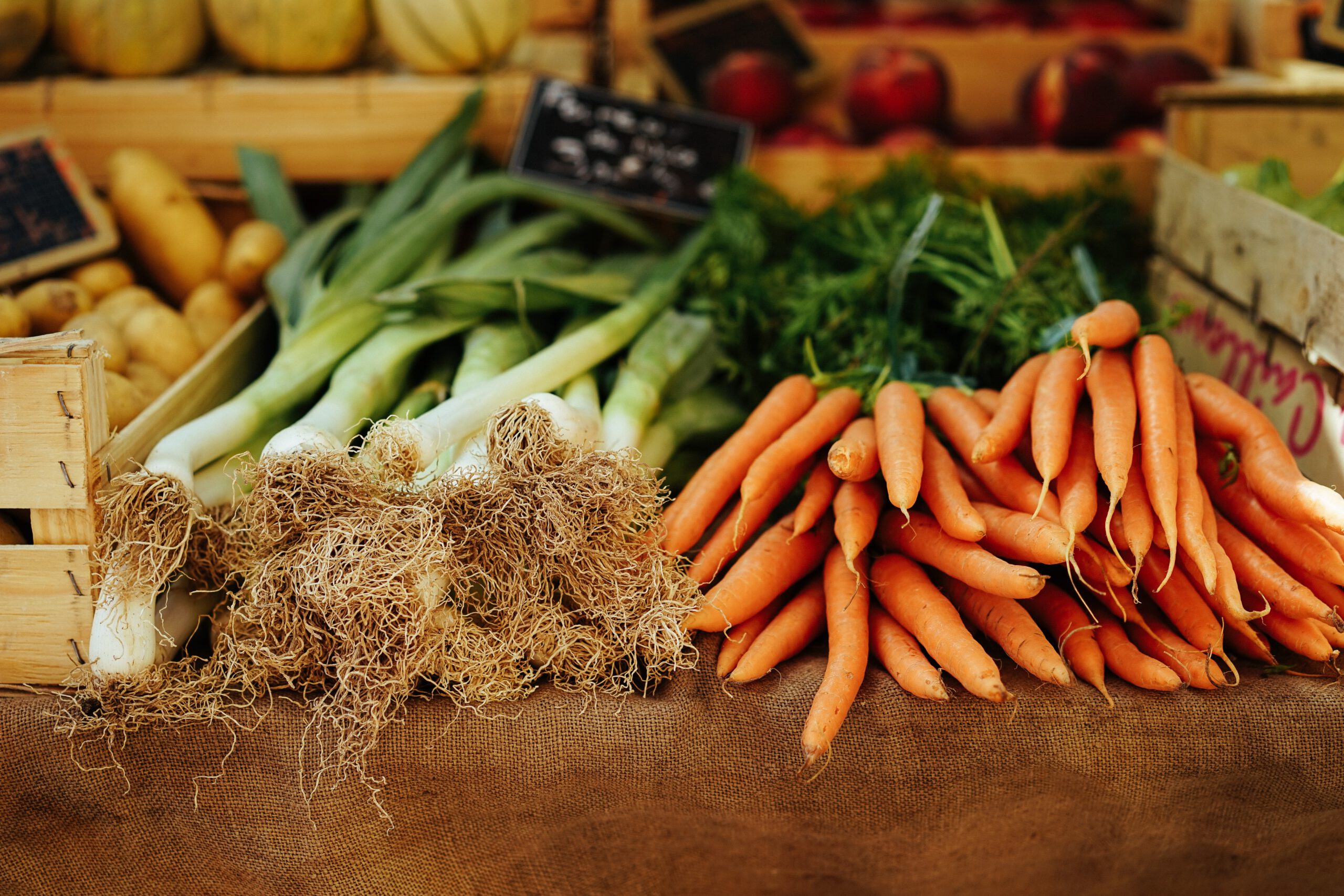By: Anya Starovoytov, Agricultural Program Director at Sonoma RCD
Sonoma RCD staff joined an insightful Soil Carbon Measurement event on April 19th, 2024, hosted by Jackson Family Wines and The Soil Inventory Project (TSIP) at Copain Winery in Healdsburg. TSIP has partnered with Jackson Family Wines, International Wineries for Climate Action (IWCA) and key academic partners to revolutionize soil carbon data collection, making it more efficient and accessible for agricultural management decisions on a larger scale. The group recently secured a $2M USDA Climate Smart Commodities grant to conduct soil carbon sampling for IWCA members and provide direct payment to enrolled vineyards for implementing Climate Smart farming practices.
Soil sampling locations for this initiative included the on-going 10-year field trial coordinated by Jackson Family Wines and Sonoma Resource Conservation District at Saralee’s Vineyard in Windsor. This vineyard trial is exploring the impact of compost application and reduced tillage on soil carbon and other soil health indicators. Learn more about this field trial here: https://soilhub.org/what-we-do/field-trials-demos/jackson-family-wines-demonstration-vineyard/
Led by Dr. Kris Covey and Dr. Bruno Basso, TSIP is developing a database and mobile app to streamline soil sampling. Utilizing data from the Soil Survey Geographic Database (SSURGO), the app selects optimal sampling locations based on soil type distribution and data provided by the producer. Once a sample is gathered, the app geotags the final sampling location before submitting to the lab. TSIP’s app and streamlined in-field sampling kit, using a drill and soil harvester, offers a simple and quick way to sample for carbon across larger acreages.
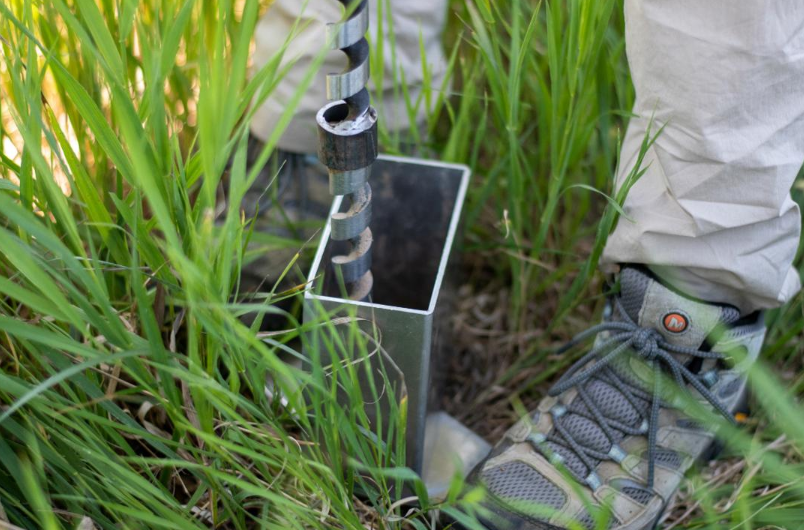
TSIP’s in-field soil sampling kit includes a drill and soil harvester box for simplifying sample collection. Image Credit: https://thesoilinventoryproject.org/how-it-works
By aggregating field data and employing a model that accounts for soil type, current land management, and land use history, TSIP aims to develop regional practice baselines. When publicly available, these data products will empower producers, aggregators, and carbon markets to understand the impact of management across scales. The goal is to identify what agricultural land management practices produce what climate impact, where land management affects the largest climate outcome, and which land management adaptations are more suitable for future climate outcomes across different regions.
At the Copain Winery event, regional partners working in vineyard soil carbon sequestration gathered to learn more about TSIP’s ongoing initiative and encourage further collaboration and soil carbon data sharing. Attendees heard about TSIP’s progress to date and got to test out the sampling equipment firsthand.
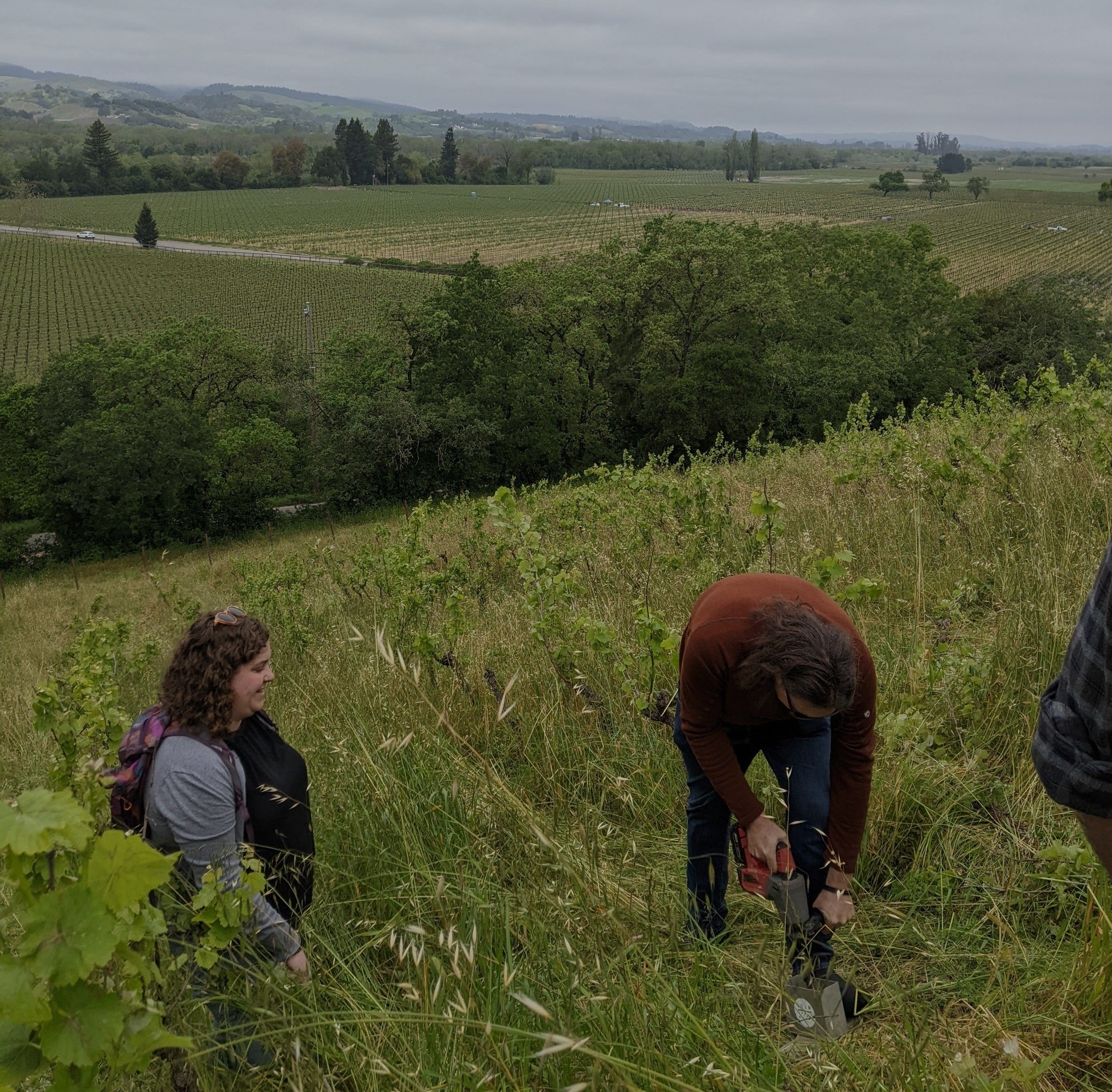
Attendees testing out TSIP soil sampling kit at Copain Winery.
Image Credit: Anya Starovoytov
This effort is just the beginning with TSIP committed to sharing data insights as their database expands. They are also exploring whether this simplified sampling approach could be used to gather samples for other soil health parameters beyond carbon. The North Coast Soil Hub will be tracking this initiative, recognizing the potential to simplify soil data collection, which will benefit both the North Coast producers and RCD staff and other consultants alike. Establishing regional practice baselines would give a better understanding of existing soil conditions, how they compare to other similar farms nearby, and which climate-smart practices are worth investing in. This knowledge is invaluable for optimizing soil productivity, minimizing costs, maximizing yields, and addressing the pressing challenges posed by climate change.

